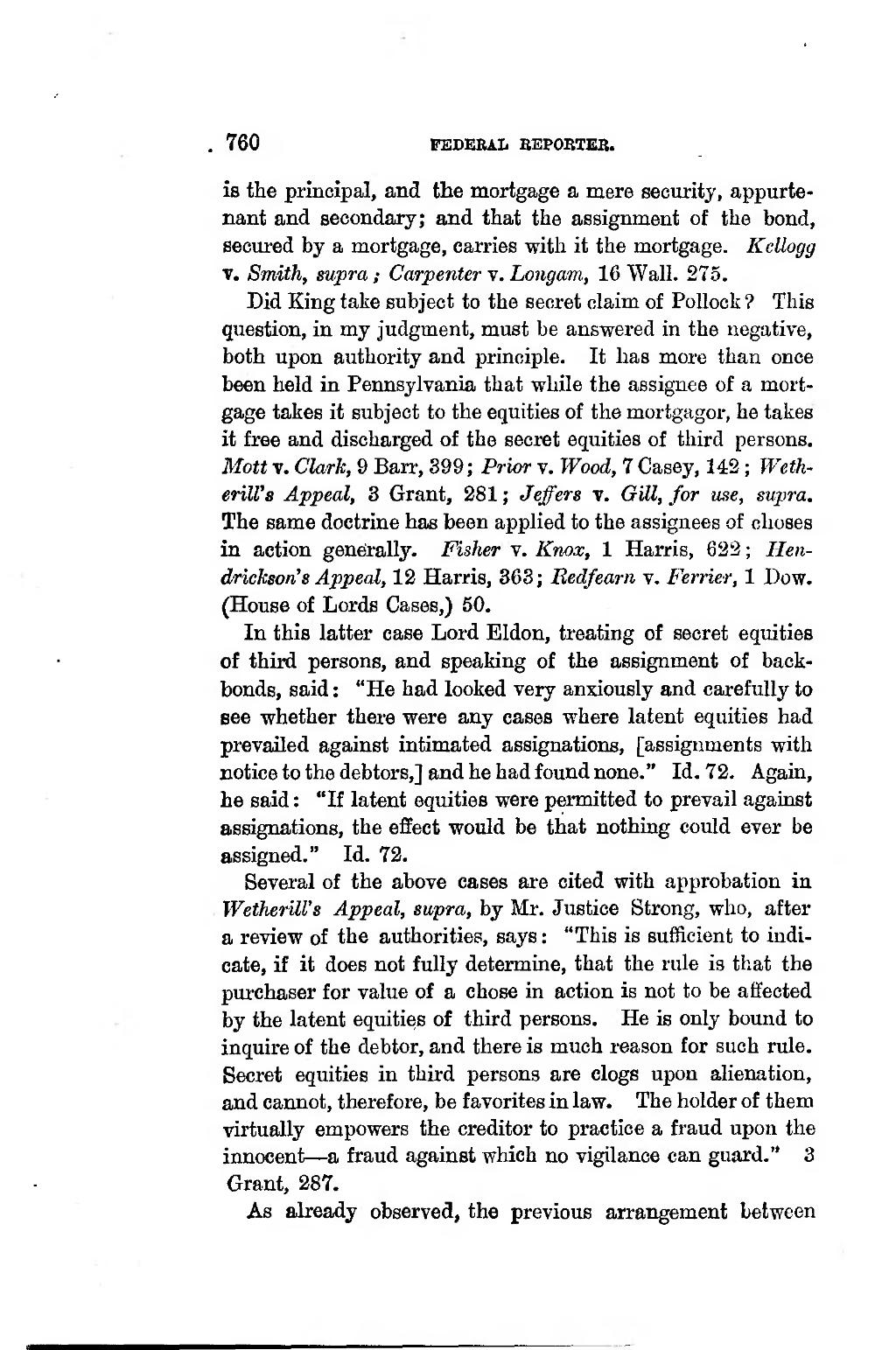760 FBDKRAL BEPOETEB. �îs the principal, and the mortgage a mere security, apparte- nant and secondary; and that the assignment of the bond, secured by a mortgage, carries with it the mortgage. Kellogg V. Smith, supra ; Carpenter v. Longam, 16 Wall. 275. �Did King take subject to the secret claim of Pollock ? This question, in my judgment, must be answei-ed in the negative, both upon authority and principle. It bas more than once been held in Pennsylvania that while the assignee of a mort- gage takes it subject to the equities of the mortgagor, he takes it free and discharged of the secret equities of third persons. Mott V. Clark, 9 Barr, 399; Prior v. Wood, 7 Casey, 142 ; Weth- erill's Appeal, 3 Grant, 281; Jeffers v. GUI, for use, supra. The same doctrine bas been applied to the assignees of choses in action generally. Fisher v. Knox, 1 Harris, 622 ; Hen- drickson' s Appeal, 12 Harris, 363; Bedfearn v. Ferrier, 1 Dow. (House of Lords Cases,) 50. �In this latter case Lord Eldon, treating of secret equities of third persons, and speaking of the assignment of back- bonds, said: "He had looked very anxiously and carefuUy to see whether there were any cases where latent equities had prevailed against intimated assignations, [assiguments with notice to the debtors,] and he had f ound none. " Id . 72. Again, he said : "If latent equities were permitted to prevail against assignations, the effect would be that nothing could ever be assigned." Id. 72. �Several of the above cases are cited with approbation in WetheriU's Appeal, supra, by Mr. Justice Strong, who, after a review of the authorities, says: "This is sufficient to indi- cate, if it does not fully determine, that the rule is that the purchaser for value of a chose in action is not to be affected by the latent equities of third persons. He is only bound to inquire of the debtor, and there is much reason for such rule. Secret equities in third persons are clogs upon alienation, and cannot, therefore, be favorites in law. The holder of them virtually empowers the crediter to practice a fraud upon the innocent — a fraud against which no vigilance can guard." 3 Grant, 287. �As already observed, the previous arrangement between ��� �
